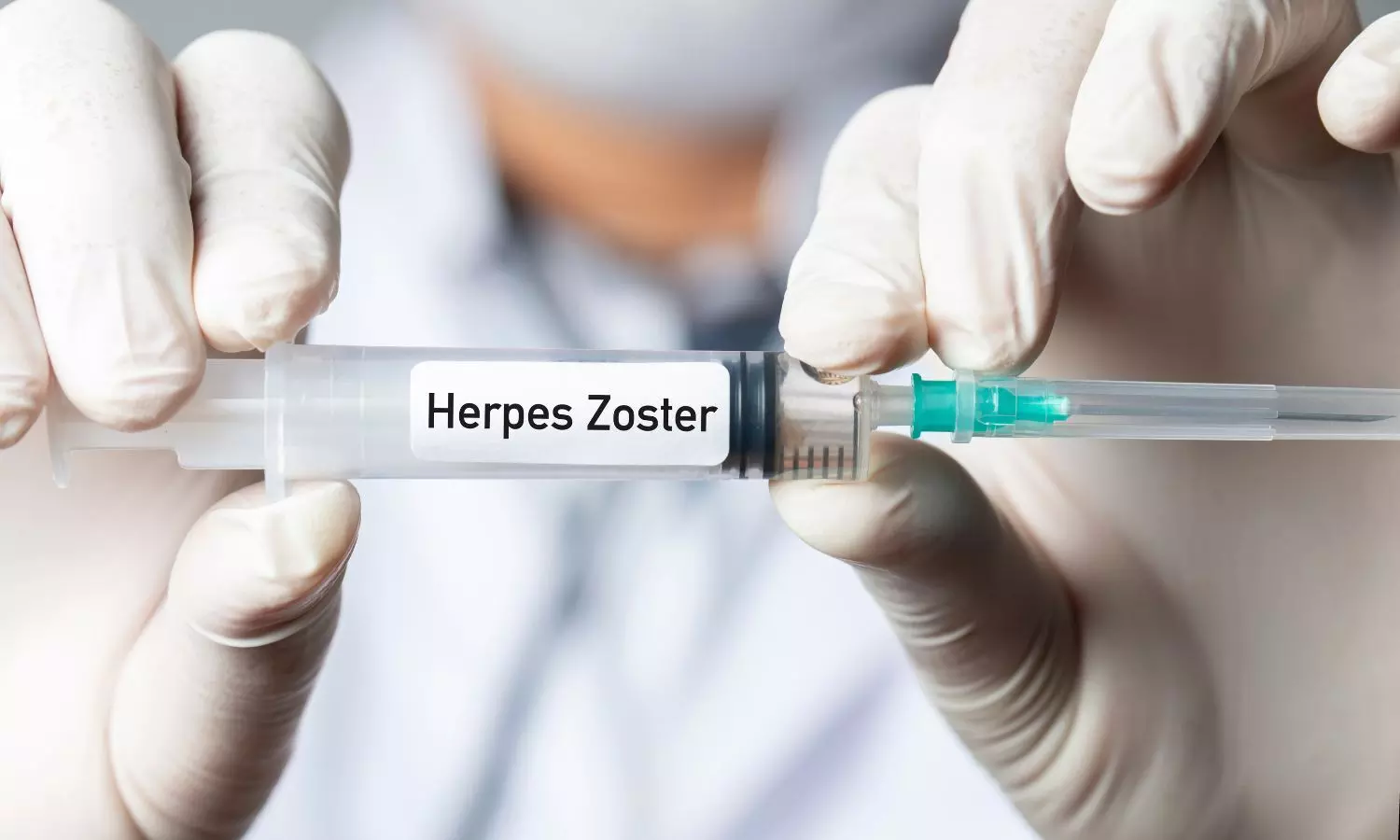Shingrix Vaccine Cuts Risk of Herpes Zoster Ophthalmicus, Heart Attack, and Stroke in Adults 50+: Study

A new study published in the journal of Clinical Infectious Diseases showed that in addition to reducing the incidence of herpes zoster ophthalmicus (HZO) by 72.9%, the recombinant herpes zoster vaccine (Shingrix) was associated with a decreased risk of hospitalization for acute myocardial infarction (MI) and stroke in patients 50 years of age and older.
A prevalent illness in older persons, herpes zoster (HZ) is brought on by the reactivation of the latent varicella zoster virus and can result in serious morbidity and a reduced quality of life. Herpes zoster ophthalmicus, one of its most severe forms, can cause long-term eye problems and vision loss. The adjuvanted recombinant zoster vaccine (RZV), which provides strong and long-lasting protection against HZ across age groups, has revolutionized preventative measures.
Thereby, to optimize preventive treatment and guide vaccination programs for older populations at increased risk for cardiovascular and infectious problems, it is imperative to comprehend these protective benefits. This study assessed the relationship between recombinant zoster vaccine and risk for hospitalized stroke, hospitalized acute myocardial infarction (AMI), and hospitalized HZO in adults aged ≥50 years (YoA).
Using sex, age, race/ethnicity, and index date (date of second dose among vaccinated; date of unvaccinated match assigned same date), this research matched adults ≥50 YoA who received 2 doses of RZV 4 weeks–6 months apart between 01 April 2018 and 31 December 2020 1:4 to RZV-unvaccinated individuals.
The follow-up period began on the index date and terminated on December 31, 2022, or upon receiving the zoster vaccination, membership termination, or death, whichever occurred first. ICD-10 codes were used to identify inpatient AMI and stroke, whereas natural language analysis of clinical notes was used to identify HZO.
The median age was 68 years (range: 50, 108), 59.0% of the 102,766 2-dose RZV-vaccinated and 411,064 unvaccinated people were female, and 57.1% were non-Hispanic White.
When comparing RZV-vaccinated and unvaccinated persons, the aHRs (95% CI) for inpatient stroke, hospitalized AMI, and HZO were 0.575 (0.533, 0.619), 0.720 (0.588, 0.881), and 0.271 (95% CI: 0.222, 0.330), respectively. 72.9% (67.0%, 77.8%) was the adjusted RZV efficacy against HZO. Overall, two RZV dosages were linked to a decreased incidence of HZO, AMI, and stroke in persons aged ≥50 years.
Source:
Rayens, E., Sy, L. S., Qian, L., Wu, J., Ackerson, B. K., Luo, Y., Zheng, C., Cheng, Y., Vega Daily, L. I., Song, J., Takhar, H. S., Ku, J. H., Cohen, R. A., Yun, H., Oraichi, D., Seifert, H., & Tseng, H.-F. (2025). Adjuvanted recombinant zoster vaccine is effective against herpes zoster ophthalmicus, and is associated with lower risk of acute myocardial infarction and stroke in adults aged ≥50 years. Clinical Infectious Diseases: An Official Publication of the Infectious Diseases Society of America. https://doi.org/10.1093/cid/ciaf440


